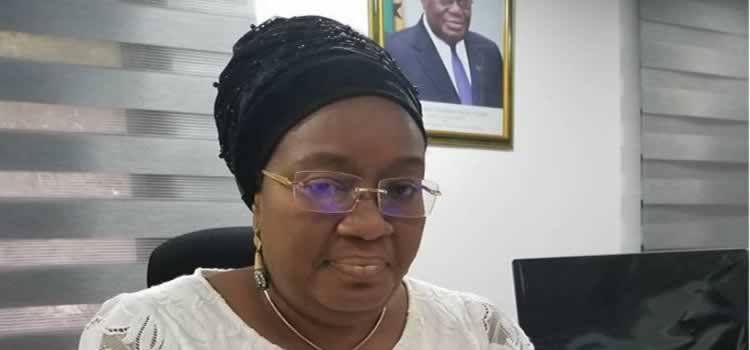Adverts
GENERAL
DACF Administrator implores MPs to team up with MMDCEs
Irene Naa Torshie Addo, the Administrator of the District Assemblies Common Fund (DACF), has implored Members of Parliament to collaborate with their respective Metropolitan, Municipal and District Chief Executives (MMDCEs) to ensure that their Assemblies fulfill the minimum requirement of the District Performance Assessment Tool (DPAT).

Date Created : 2/19/2019 3:00:54 AM : Story Author : GNA
She said this would enable them access the entire amount for the development of the Assemblies.
Her advice comes at the back of the failure of some Metropolitan, Municipal and District Assemblies (MMDAs) in the assessment criteria, and as a result could not benefit from the District Assemblies Common Fund Responsiveness Factor Grant (DACF RFG), the Donor Partner Support to MMDAs.
The objective of the Responsiveness Factor Grant is to use the DPAT, a common tool used to evaluate all MMDAs and the result is used to allocate and distribute to the DACF RFG to qualified Assemblies.
These were contained in a Report of the Committee of the Whole on the Proposed Formula for the Sharing of the District Assemblies Common Fund for the Year 2019, presented to Parliament on Friday.
The Committee recommended that the House approve Scenario A of the Weighting Formula as the basis for the distribution of an amount of GHC2.079 billion of the DACF to all MMDAs.
The Committee reported that of a total of six new Assemblies have been established, bringing the total number of MMDAs that would benefit from the 2019 Formula to 260; and the Administrator indicated that the new Assemblies would have to depend on the data of their parent Assemblies for their share of the Fund, which she noted was not the best.
The Administrator said her office would conduct an exercise to collect data on all infrastructure and properties including schools, market places, hospitals, police stations, among others, situated within the Assemblies to inform the preparation of the Formula.
Another observation made by the Committee was that, whereas in 2004, newly established assemblies were provided a seed capital of GHC 2 million, assemblies created subsequently continue to receive the same amount notwithstanding the effects of inflation and a dip in value of the cedi.
The Committee accordingly requested the Administrator to provide adequate seed capital and funding to enable newly established assemblies to take off successfully.
Article 252 of the 1992 Constitution of Ghana and Section 12(1) of the Local Governance Act, 2016 (Act 936) enjoins Parliament to make provision for the allocation of not less than 5 per cent of the total revenue of the country to the DACF for the implementation of development programmes in the MMDAs.
Also, Section 129 (a) of the Local Governance Act, 2016 (Act 936), enjoins the Administrator of the Fund to propose annually, for the consideration and approval of Parliament for the distribution of the DACF.
The Report said, in developing the Formula, the Administrator was guided by the “Basic Needs” Approach to development with indicators of Health Service, Education Service, Water Coverage and Tarred Roads Coverage.
Under that approach, the MMDAs with more facilities or services receive less in order to bridge the development gap between the Assemblies.
The Report said the proposed Formula also took into account other factors as Service Pressure and Equality.


 facebook
facebook X (twitter)
X (twitter) Youtube
Youtube +233 593 831 280
+233 593 831 280 0800 430 430
0800 430 430 GPS: GE-231-4383
GPS: GE-231-4383 info@ghanadistricts.com
info@ghanadistricts.com Box GP1044, Accra, Ghana
Box GP1044, Accra, Ghana